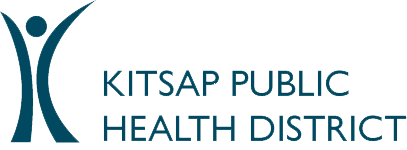
ACTIONS REQUESTED
- BE AWARE that Candida auris (C. auris) has been identified in Washington patient — a Pierce County resident diagnosed July 13. This is believed to be the first locally acquired case of C. auris in Washington state.
- BE AWARE that C. auris is an emerging and often multidrug-resistant fungal pathogen. C. auris can cause outbreaks that are difficult to control in healthcare facilities.
- BE AWARE that strict adherence to routine healthcare infection prevention activities is effective in preventing the spread of C. auris in healthcare facilities.
- ENSURE that your healthcare facility optimizes infection prevention practices that are proven to prevent transmission of C. auris, including hand hygiene, transmission-based precautions, environmental cleaning, and cleaning and disinfection of reusable medical equipment.
- Patients with suspected or confirmed C. auris in healthcare facilities should be managed using contact precautions and placed in a single room whenever possible.
- Reinforce and audit core infection prevention practices in healthcare facilities.
- When C. auris is suspected, use healthcare disinfectants that are effective against C. auris and follow disinfectant instructions for use, including proper precleaning, dilution, and wet time.
- Remain vigilant for any increase in Candida results in a patient care unit, including from non-sterile sites, and consider C. auris. Review Candida speciation options with your lab. Candida isolates requiring speciation can be sent to the Washington Antibiotic Resistance Laboratory.
- Communicate information about colonization or infection with C. auris during care transitions within and transfers between healthcare settings. Consider using the CDC Interfacility transfer form.
- For laboratories working with suspect or confirmed C. auris, be aware of safety considerations including recommended PPE, disinfection, and disposal.
- INQUIRE ABOUT high-risk exposures in newly admitted patients and consider C. auris screening in patients at high-risk for C. auris, including those who have had:
- Close contact in a healthcare setting to another patient with C. auris; or
- An overnight stay in a healthcare facility outside the U.S. or in a region within the U.S. with documented C. auris cases in the previous year.
- COORDINATE SCREENING AND TESTING with Public Health when risk factors for C. auris are identified. Contact the nurse on duty for Kitsap Public Health District at 360-728-2235.
- BE AWARE that Public Health offers proactive C. auris screening to residents at long-term ventilator capable healthcare facilities and long-term acute care hospitals.
- BE AWARE that C. auris can be misidentified through commercial laboratory testing and specific technology is needed for correct identification.
- CONSIDER an infectious disease consultation for treatment options for patients with invasive C. auris infections. Even after treatment, patients generally remain colonized with C. auris for long periods, and perhaps indefinitely.
- IMMEDIATELY REPORT any suspected or confirmed C. auris cases or outbreaks to Public Health. Contact the nurse on duty for Kitsap Public Health District at 360-728-2235.
- C. auris is a notifiable condition in WA as of January 1, 2023.
BACKGROUND
A patient in a Washington healthcare facility with was recently reported to have C. auris. Based on known details, the state Department of Health believe (DOH) believes this case of C. auris was acquired in Washington.
The Tacoma-Pierce County Health Department is investigating the case.
DOH is also aware of one other unrelated Washington resident who tested positive for C. auris during a hospitalization in another state. DOH and partner local health jurisdictions are working with involved facilities to assess and optimize infection prevention practices and to perform screening of other patients to identify if transmission has occurred. Public Health is making this announcement to strongly encourage all healthcare facilities to optimize infection prevention practices and to prepare for safely admitting and caring for patients who are infected or colonized with C. auris.
C. auris was first reported in 2009 outside of the U.S. and has since emerged globally as a life-threatening, highly transmissible, often multidrug resistant yeast that has caused difficult to control healthcare outbreaks. Invasive infections with any Candida species can be fatal. Based on information from a limited number of patients, more than 1 in 3 people with C. auris infections have died. Patients needing long term acute care and indwelling devices are at the highest risk for acquisition. International healthcare is often the initial source of introduction of C. auris to a region and subsequent healthcare transmission may occur due to lapses in infection control practices.
C. auris can be misidentified as a number of different organisms when using traditional phenotypic methods for yeast identification such as VITEK 2 YST, API 20C, BD Phoenix yeast, and Microscan. An increase in infections due to unidentified Candida species in a patient care unit, including increases in isolation of Candida from urine specimens, should also prompt suspicion for C. auris.
DOH performs special surveillance for C. auris by screening isolates submitted from high-risk patients,
proactive screening of patients in high acuity long term care facilities, and sentinel lab submissions of
non-albicans Candida species to the WA Public Health Laboratory for species identification. There are
currently no FDA-approved tests for colonization swabs. Laboratories with capability to characterize
isolates further when C. auris is suspected are encouraged to do so. Public Health closely tracks all
known C. auris cases and notifies healthcare facilities if a newly admitted patient should be screened.
ADDITIONAL RESOURCES
- CDC General Information about Candida auris
- CDC Candida auris information for laboratorians and health professionals
- EPA Antimicrobial products registered with the agency for claims against Candida auris
- Washington State Department of Health (DOH) Candida auris resources
- Washington State Department of Health (DOH) Candida auris testing information
- Tacoma-Pierce Health Department news release on resident diagnosis of Candida auris
